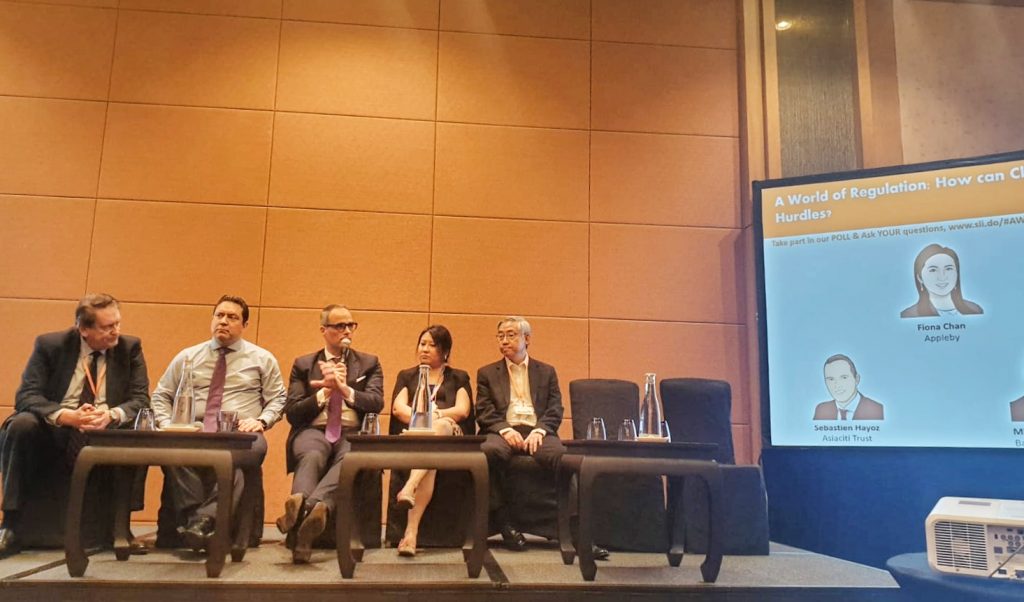Latest News
ARTICLE: Adapting to the World of Regulation – How Asia’s HNWIs Can Overcome the Hurdles Ahead
20/12/2019

Asiaciti Trust’s Sebastien Hayoz and four other industry experts gathered at the Asian Wealth Solutions Forum 2019 to debate how the Asian wealth management community is reacting to all the acronyms launched by the regulators in recent years, and whether this is all producing a windfall of business for the industry or choking off the market’s air supply.
Here are nine key takeaways:
1) CRS and substance driving change in the family office space
In the world of HNWIs and UHNWIs, the Common Reporting Standard (CRS) and new economic substance rules are pressuring clients to consolidate jurisdictions and to wean out those centres that might have negative connotations.
2) CRS audits next – joy to all mankind
The CRS audits are gearing up in number and depth, imposing a lot of internal pressure on the banks and the advisory community, and especially and ultimately on the end-clients. The wealth management community is advised to prepare, but thus far, they seem generally ill-prepared.
3) What exactly is substance?
The economic substance regulations and guidance are quite complex, and each jurisdiction appears thus far to be adopting a slightly different interpretation.
4) How much do you benefit?
The rising prominence of beneficial ownership (BO) registers is another spectre now haunting the wealth management community. There is little doubt that over time, the truth will out, so clients and advisers beware.
5) Will new pillars hold up the structures?
If the current pace of regulatory change persists in the future, even new structures and new supporting pillars are potentially unlikely to survive. Does this mean everyone should think about heading mid-shore, for example to Singapore, or to Hong Kong, where they can easily comply with all the required regulations and where there are fiscal and other incentives for the very wealthy to house their assets?
6) Trusting the trustees
The proliferation of new rules and guidelines and the demands of compliance are both pressuring the trust industry. Clients who do not appreciate the absolute need for an arms’ length relationship are fooling themselves. Again, this might be driving more assets and structures mid-shore.
7) Could the US be a viable alternative?
The US has not signed up to the CRS, and while it does have FATCA, generally it is not reciprocal. Yes, and no. On the surface, the US is away from the grasp of CRS, but the US will stamp down hard on activities deemed to be avoiding FATCA and moreover, who is to say that the next US administration does not embrace CRS, especially if a Democrat is in the White House?
8) Disclosure no longer optional
The Mandatory Disclosure Rules (MDR) appear at least in part designed to prevent moving financial assets around into non-CRS jurisdictions, perhaps specifically the US. Reporting obligations for advisers and others in the wealth industry are becoming ever more intense, and the industry must be extremely cautious about advice that might be construed towards non-compliance.
9) Complexity is irreversible, and transparency is here to stay
The journey towards full compliance and transparency is tough for all parties, but it is a journey that must
be made. Ignore the road signs at your peril.
Read the full article here.




